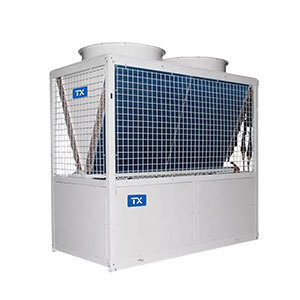Understanding Air Cooled Water Chillers: Efficiency, Applications, and Benefits

Air cooled water chillers are essential equipment in various industrial applications, providing effective cooling solutions without the need for cooling towers or water sources. These systems operate by using air as a medium to dissipate heat, making them an efficient choice for facilities with limited water resources or where water conservation is a priority.
One of the primary advantages of air cooled water chillers is their simplicity in installation and maintenance. Unlike water-cooled systems that require extensive plumbing and additional water treatment processes, air cooled chillers can be installed with minimal infrastructure. This not only reduces the initial investment but also lessens the ongoing operational costs associated with water usage and treatment.
Air cooled water chillers work by circulating refrigerant through a closed loop system. The refrigerant absorbs heat from the water being cooled and is then compressed and sent to the condenser. In the condenser, the refrigerant releases this heat into the air, facilitated by fans that promote airflow. The cooled refrigerant then returns to absorb more heat from the water, creating a continuous cycle. This process is not only efficient but also environmentally friendly, as it eliminates the need for water discharge and reduces the risk of water pollution.
In terms of applications, air cooled water chillers are widely used in manufacturing, chemical processing, food and beverage production, and data centers. Their versatility allows them to provide precise temperature control essential for various processes. Furthermore, these chillers can be designed to accommodate different cooling capacities, making them suitable for small workshops to large industrial facilities.
When it comes to energy efficiency, many modern air cooled water chillers are equipped with advanced technology such as variable speed compressors and fans. These features allow the chiller to adjust its cooling output based on the current load, optimizing energy consumption and reducing operational costs. Additionally, some models incorporate intelligent controls that enable remote monitoring and management, further enhancing efficiency and reliability.
In conclusion, air cooled water chillers represent a practical and efficient solution for industrial cooling needs. Their ease of installation, low maintenance requirements, and adaptability to various applications make them a preferred choice for many industries. As technological advancements continue to evolve, these chillers are becoming increasingly energy-efficient, contributing to sustainable practices in industrial operations. By understanding the operational principles and benefits of air cooled water chillers, professionals can make informed decisions that align with their cooling requirements while promoting efficiency and environmental responsibility.
One of the primary advantages of air cooled water chillers is their simplicity in installation and maintenance. Unlike water-cooled systems that require extensive plumbing and additional water treatment processes, air cooled chillers can be installed with minimal infrastructure. This not only reduces the initial investment but also lessens the ongoing operational costs associated with water usage and treatment.
Air cooled water chillers work by circulating refrigerant through a closed loop system. The refrigerant absorbs heat from the water being cooled and is then compressed and sent to the condenser. In the condenser, the refrigerant releases this heat into the air, facilitated by fans that promote airflow. The cooled refrigerant then returns to absorb more heat from the water, creating a continuous cycle. This process is not only efficient but also environmentally friendly, as it eliminates the need for water discharge and reduces the risk of water pollution.
In terms of applications, air cooled water chillers are widely used in manufacturing, chemical processing, food and beverage production, and data centers. Their versatility allows them to provide precise temperature control essential for various processes. Furthermore, these chillers can be designed to accommodate different cooling capacities, making them suitable for small workshops to large industrial facilities.
When it comes to energy efficiency, many modern air cooled water chillers are equipped with advanced technology such as variable speed compressors and fans. These features allow the chiller to adjust its cooling output based on the current load, optimizing energy consumption and reducing operational costs. Additionally, some models incorporate intelligent controls that enable remote monitoring and management, further enhancing efficiency and reliability.
In conclusion, air cooled water chillers represent a practical and efficient solution for industrial cooling needs. Their ease of installation, low maintenance requirements, and adaptability to various applications make them a preferred choice for many industries. As technological advancements continue to evolve, these chillers are becoming increasingly energy-efficient, contributing to sustainable practices in industrial operations. By understanding the operational principles and benefits of air cooled water chillers, professionals can make informed decisions that align with their cooling requirements while promoting efficiency and environmental responsibility.
PREVIOUS:

